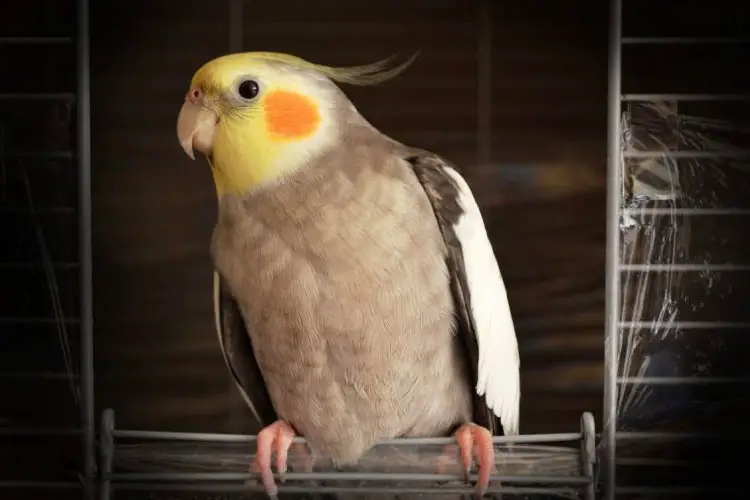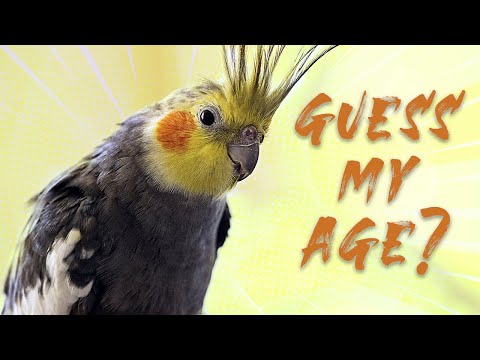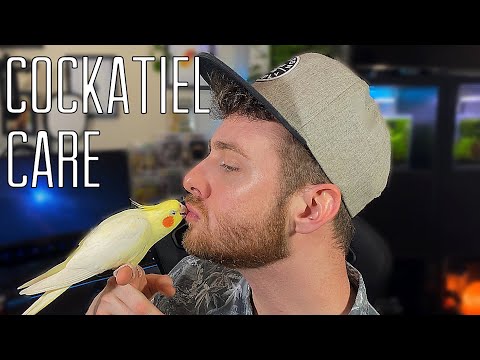If you’ve ever owned a cockatiel, you know that they’re more docile than other types of parrots. When they enter their last golden years, they require extra care from their keepers.
Nevertheless, if you do not know what the cockatiel signs of old age are, then how would you identify that and care for an old friend? Some birds may show no signs of slowing down in old age, while others may experience moderate to severe decline. When given the right treatment, an older cockatiel can provide you with many more happy years of companionship.
The signs of an aging cockatiel and the best ways to care for them are discussed in this article.
How to Identify an Old Cockatiel?
If you are not familiar with how to identify the age of your cockatiel then we are here to help you.
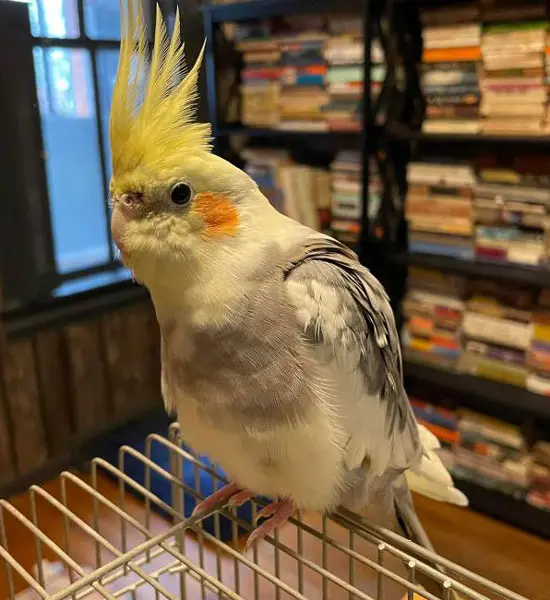
Below you can find the top 8 ways to identify the age of your cockatiel.
1. Dimensions of the Body
Adult birds average between 12 and 13 inches in length, making them considerably bigger than their younger counterparts. If the bird has an expanded patch on its cheek, it may be rather seasoned.
However, older cockatiels have short beaks because the feathers on the side of the beak cover most of the beak.
2. Listen to its Singing
It applies to older males only as female cockatiels and young males rarely make noise unless they are threatened. Older males tend to use a more beautiful voice when they sing. So listening to your male tile’s beautiful song is a way to tell it has become mature.
3. Observing the Beaks
Your cockatiel’s face and beak characteristics are good indicators of his age. If you see a young cockatiel, you’ll notice its infant’s face. Larger and more protruding beaks are signs that your cockatiel might have reached the utmost maturity.
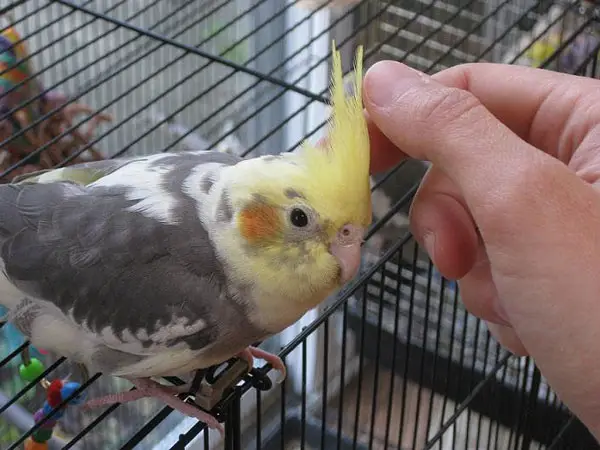
4. Observing the Skin
Younger cockatiels, like most other birds, have softer, less scaled skin. Their scales get thicker and their skin gets tougher as they age.
5. Tail Size
For the first year of a cockatiel’s life, its tail feathers will typically be proportional to its body size. After the first year, the feathers begin to grow longer than the body. So when you see the longest, you can see they have become mature and will head to the golden years after a few days.
6. Sleeping Time
Sleepiness is more common in older cockatiels than in younger ones. They may get by on as little as 10- 12 hours of sleep a day, but can easily spend 17 or 18 hours in bed. Children typically sleep between 10 and 14 hours per day.
7. Nails
You can find pretty much long, cracked, and inwardly curved nails are a common trait of older cockatiels.
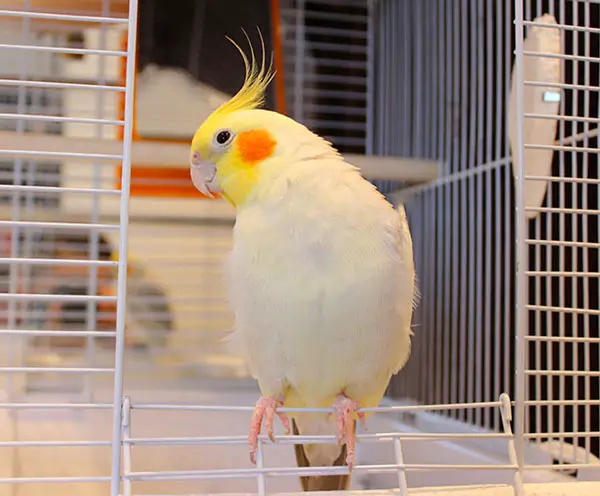
8. Eyes
If you look at old birds, you’ll notice that their eyes are much larger than they were when younger. The same goes for cockatiels, the size of the eyes is one more way to tell how they’ve aged.
9. Features
With the aging of a cockatiel, you can also see their features getting a massive change. Normally a cockatiel molts at 6-12 months of age but with time it loses its ability to molt. As a result, they have a huge decline in the quality and sheen of the features in their body.
How to Take Care of an Old Cockatiel?
Well, as we now know how to identify an old cockatiel, we are left to know how to take good care of them.
Below we have gathered 6 ways to take care of an old cockatiel. Read the below information to get an idea of these.
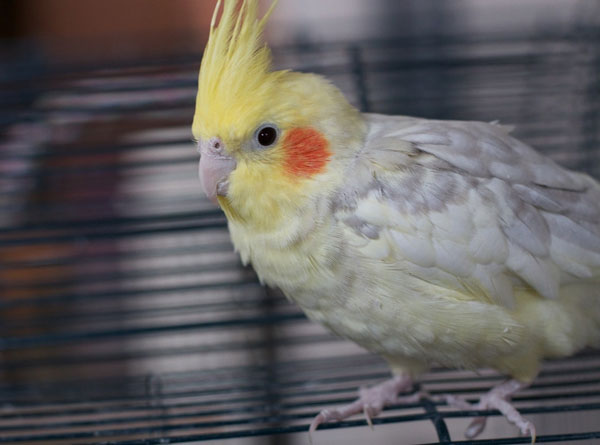
Adequate Food
Feeding your aging cockatiel a healthy diet is an essential part of caring for it. Many of the health problems that can affect birds as they get older can be avoided with a healthy diet.
As they age they are more into digestion health issues. Many health problems, including obesity, joint discomfort, and liver disease, can be improved or alleviated by making changes to one’s diet. In general, diets higher in fat and protein should be avoided as birds age.
This implies they need a diet higher in vegetables and lower in seed and nut goods, soy, and corn.
Relaxing Environment
Because of age-related aches and pains, some cockatiels may have trouble with their normal perching behavior. Keep an eye on them and take note if they appear to be in pain or having trouble standing on their usual perch.
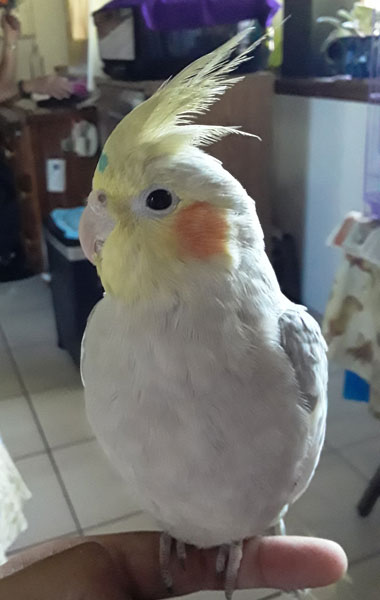
Make sure the space you provide is secure and pleasant for your bird. Your bird requires stable temperatures and the right amount of time in both the sun and the dark.
Sufficiency in Sleep
All cockatiels, but especially adults, require a nighttime nap of at least 12 hours. Because of the importance of sleep to the immune system, aging birds may require slightly more sleep than they did when they were younger. So make sure nothing disturbs their sleep.
Reduction of Stress
If your bird has a respiratory or cardiac condition, you should protect it as much as possible from stressful situations.
Always indulge in your bird’s favorite activities. Like spending time with her, inviting her out, or doing anything else kind.
Connection and Enhancement
It’s important to keep providing plenty of engagement and stimulation, even for older birds, which may have less activity than younger ones and appear satisfied simply by hanging around in their cage all day.
Cockatiels of advanced age still enjoy playing with toys made of paper or soft wood. They still require social interaction and activities that keep them active and interested in their environment.
Veterinary Check
It is important to observe your bird regularly, just like you would any other pet so that you can learn its normal behavior and recognize the first signs of disease or discomfort.
Every morning, take a few minutes to observe your bird, weigh her, and look at her droppings to ensure her health. As they get aged they are more prone to a weaker immune system and also will have a decrease in energy. Diseases are more amenable to treatment if diagnosed and treated at an early stage.
If you can see or feel any major change in your bird then you should consult any experienced veteran.
Want to learn a bit more? How to take care of an old cockatiel!
How long do cockatiels typically live when they are kept as pets?
Cockatiels that are kept in captivity tend to live longer than their wild counterparts, as you would have anticipated.
They are reliant on the care that is given to them. This is the reason why it is of the utmost importance to conduct as much study as you possibly can before getting your bird.
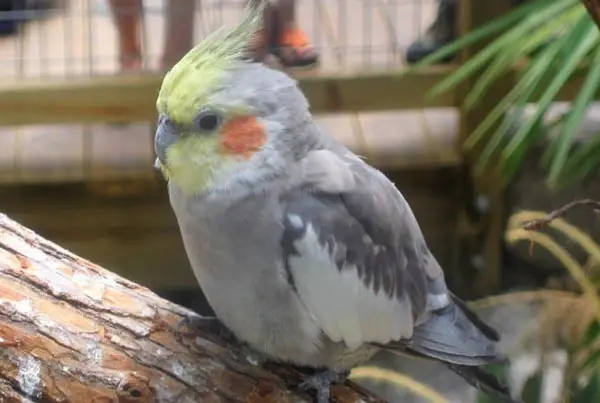
If you take good care of it, a cockatiel can be a companion for a sizeable portion of your entire life. If there are no inherited diseases or unfortunate incidents, a life expectancy of up to 16 years should not be out of the question.
It is not at all unusual for caged cockatiels to live for up to twenty-five years or even longer.
How long do wild cockatiels live?
Cockatiels have the potential to survive in the wild for a significant amount of time provided certain conditions are met.
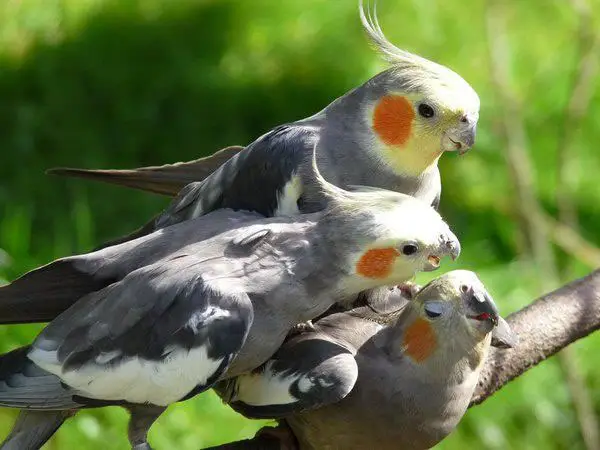
The average lifespan of a cockatiel is between 10 and 14 years, but this time frame can be significantly shortened if the bird experiences unfavorable conditions. There are a lot of young birds who don’t make it to adulthood at all.
What happens to cockatiels after a certain age?
As they get older, cockatiels often lose their strength, develop movement problems, and suffer from constant pain. They also have to face arthritis due to their weak bones.
Cockatiels, like humans, can develop crippling chronic discomfort as they age. However, their nervous systems are constructed to hide their suffering. As most of us are well aware, suffering from severe pain can be an extremely disabling condition.
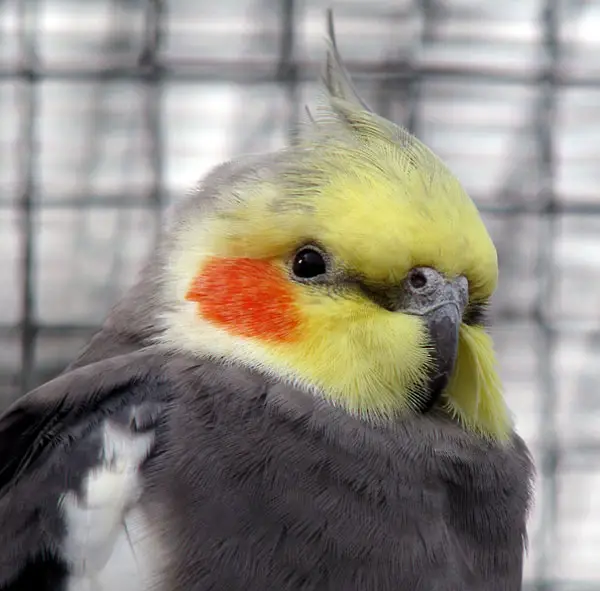
Lastly, if your bird is in a lot of pain regularly, he or she will probably be less active to avoid being in agony.
FAQs
Look at the out FAQ section to get more ideas about old-aged cockatiels.
Cockatiels start to grow weaker after 18 years old. However, due to inadequate food and shorter life expectancy, they may start to show signs of old age when they are 12 years old only.
The average life expectancy of a cockatiel in captivity is 16–25 years, but this range can be as low as 10–15 years.
Cockatiels have been known to live as long as 32 years, and the oldest confirmed one lived at 36 years old. But it depends on the environment and the food diet that you are giving it.
You can leave your bird for a minimum of 6 to a maximum of 8 hours a day. Well, it depends on the size of the cage or how fresh the food that you have provided.
Conclusion
So what are cockatiel signs of old age, and how to identify and care for an old friend? Seeing your bird suffer from age-related diseases and weakness is a common way to identify its old age. The key to your bird living a long and happy life is feeding it balanced, nourishing food. Then, of course, comes a pleasant setting, a cozy bed, and an easygoing way of life.
There are a few telltale markers of age in a bird that has reached its senior years. You have probably seen more about these symptoms above. So keep an eye on your bird to see whether age-related issues are affecting your bird, and if they are affected, take it to the vet.
